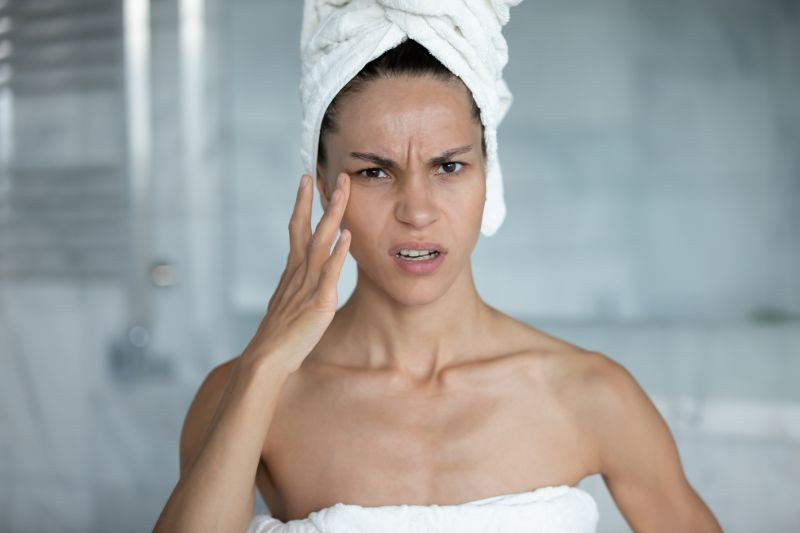Skin and hair care can offer miraculous solutions for acne-prone skin. However, some ingredients are disguised as helpful and effective when they actually worsen your skin’s condition.
We can trace the root of these adverse reactions to skin and hair care ingredients. Despite their popularity, certain compounds will trigger breakouts. Uncover the worst pore-clogging ingredients that can poison your face and learn why you should avoid them.
Coconut Oil
While coconut oil has moisturizing properties, it’s not without its pitfalls. The rich texture and hydration can solidify in pores and allow bacteria to thrive. Additionally, your scalp is at risk of dandruff and irritation from hair care products with coconut oil. It weighs down fine hair and contributes to buildup on the scalp.
Algae Extract
Algae extract is touted for its hydrating and antioxidant properties. It nourishes and protects the skin from unstable molecules due to its high content of vitamins and minerals.
However, algae extract has unique drawbacks. Its dense, rich composition can clog pores, as it forms a barrier on the skin’s surface. This barrier traps sebum, dirt, and dead skin cells, creating an environment conducive to acne breakouts.
Lanolin
A common pore-clogging ingredient that will damage your face is lanolin. Beauty product manufacturers use lanoline because it’s beneficial for dry or chapped skin. Although it serves as a protective moisturizing barrier, it’s harmful to people with acne-prone and sensitive skin.
The two main forms of lanolin in skin care are oil and alcohol. Lanolin oil is a refined derivative with deep moisturizing abilities. It mimics the skin’s natural oils, making it a potent ingredient for restoring skin softness and elasticity.
Lanolin alcohol is a byproduct of the lanolin purification process. It serves as an emollient, surfactant, and emulsifier, contributing to smoother product textures and enhanced skin hydration.
The reactions to these ingredients vary significantly among people who use them. While some may benefit from lanolin’s rich moisturizing properties, the heavy molecular structure is more likely to ignite breakouts and exacerbate existing skin conditions.
Sulfates
Sulfates are a category of chemicals common in both skin and hair care products for their cleansing and foaming properties. They lift grease, dirt, and dead skin cells, but the ingredients can also strip the skin’s natural oils. Dryness, irritation, and allergic reactions are possible after using products containing sulfates.
Keep in mind that “sulfates” is an over-arching term. Specific ingredients to avoid include the following:
- Sodium lauryl sulfate
- Sodium laureth sulfate
- Ammonium lauryl sulfate
- Ammonium laureth sulfate
Isopropyl Myristate
Hair and skin products contain isopropyl myristate for several reasons. In skin care, it improves a product’s texture and increases the effectiveness of active ingredients. Hair styling products contain this ingredient to reduce static, add shine, and detangle hair.
Nevertheless, isopropyl myristate can penetrate the skin too deeply, exacerbate sensitivity, and compromise the skin’s protective barrier. The compromised skin becomes more prone to trapping oil and dead skin cells that cause breakouts.
Sensitive, acne-prone skin is best treated with non-comedogenic formulas that avoid these ingredients. Jil Goorman Beauty’s acne treatment kits are carefully crafted to treat and prevent breakouts. Visit our website and try our incredible collection of acne-safe skin care to see results after months of consistent application!

